
Idries Shah, also known as Idris Shah, Indries Shah, né Sayed Idries el-Hashimi and by the pen name Arkon Daraul, was an Afghan author, thinker and teacher in the Sufi tradition. Shah wrote over three dozen books on topics ranging from psychology and spirituality to travelogues and culture studies.

Abū Ḥāmid bin Abū Bakr Ibrāhīm, better known by his pen-names Farīd ud-Dīn (فریدالدین) and ʿAṭṭār of Nishapur, was an Iranian poet, theoretician of Sufism, and hagiographer from Nishapur who had an immense and lasting influence on Persian poetry and Sufism. He wrote a collection of lyrical poems and number of long poems in the philosophical tradition of Islamic mysticism, as well as a prose work with biographies and sayings of famous Muslim mystics. The Conference of the Birds, The Book of Divine, and Memorial of the Saints are among his best known works.
A teaching story is a narrative that has been deliberately created as a vehicle for the transmission of wisdom. The practice has been used in a number of religious and other traditions, though writer Idries Shah's use of it was in the context of Sufi teaching and learning, within which this body of material has been described as the "most valuable of the treasures in the human heritage". The range of teaching stories is enormous, including anecdotes, accounts of meetings between teachers and pupils, biographies, myths, fairy tales, fables and jokes. Such stories frequently have a long life beyond the initial teaching situation and have contributed vastly to the world's store of folklore and literature.

Re: Colonised Planet 5, Shikasta is a 1979 science fiction novel by Doris Lessing, and is the first book in her five-book Canopus in Argos series. It was first published in the United States in December 1980 by Alfred A. Knopf, and in the United Kingdom in November 1979 by Jonathan Cape. Shikasta is also the name of the fictional planet featured in the novel.
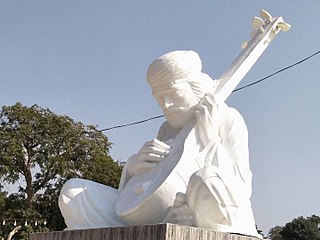
Shah Abdul Latif Bhittai, commonly known by the honorifics Lakhino Latif, Latif Ghot, Bhittai, and Bhit Jo Shah, was a Sindhi Sufi mystic and poet from Pakistan, widely considered to be the greatest poet of the Sindhi language.

Tahir Shah is a British author, journalist and documentary maker of Afghan-Indian descent.
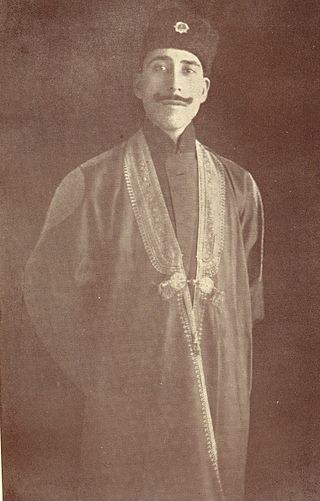
Sirdar Ikbal Ali Shah was an Indian-Afghan author and diplomat descended from the Sadaat of Paghman. Born and educated in India, he came to Britain as a young man to continue his education in Edinburgh, where he married a young Scotswoman.

Amina Maxwell-Hudson was a British anthologiser of Sufi stories and folk tales, and was for many years the Chairperson of the College of Storytellers. She was the sister of the Sufi writers Idries Shah and Omar Ali-Shah, and the daughter of Sirdar Ikbal Ali Shah and Saira Elizabeth Luiza Shah, a Scottish woman. Her nephew is the travel writer and documentary filmmaker Tahir Shah; her nieces are Safia Shah and the writer and documentary filmmaker Saira Shah.
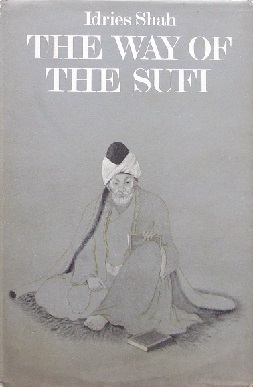
The Way of the Sufi was the best-selling follow-up introduction to Sufism by the writer Idries Shah after the publication of his first book on the subject, The Sufis. Whereas The Sufis eschewed academic norms such as footnotes and an index, The Way of the Sufi provided a full section of notes and a bibliography at the end of its first chapter, entitled "The Study of Sufism in the West".
The Institute for Cultural Research (ICR) was a London-based, UK-registered educational charity, events organizer and publisher which aimed to stimulate study, debate, education and research into all aspects of human thought, behaviour and culture. It brought together many distinguished speakers, writers and Fellows over the years.
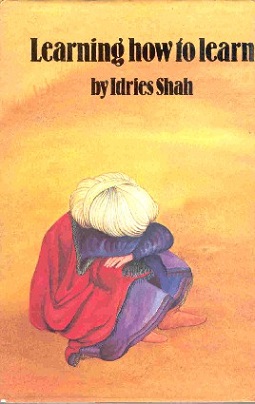
Learning How to Learn: Psychology and Spirituality in the Sufi Way is a book by the writer Idries Shah that was first published by Octagon Press in 1978. Later editions by Harper & Row (1981) and Penguin Books include an introduction by Nobel Prize Winner Doris Lessing.

The Dermis Probe is a book by Idries Shah published by Octagon Press in 1970. A paperback edition was published in 1989 and again in 1993. The stories presented in the book are also available in an audio format.

First published in 1971, Thinkers of the East: Studies in Experientialism was one of several books of Eastern practical philosophy study materials selected and arranged by Idries Shah for a contemporary readership.
Octagon Press was a cross-cultural publishing house based in London, UK. It was founded in 1960 by Sufi teacher, Idries Shah to establish the historical and cultural context for his ideas. The company ceased trading in 2014.

Sufism in Sindh covers the tradition of Sufism in Sindh, which is reputed to be an area of mystics. Sindh is famous for the enormous number of saints and mystics who lived there and preached peace and brotherhood. According to popular legend, 125,000 of them are buried on Makli Hill near Thatta. There is an abundance of Sufi literature produced in Sindh throughout history.
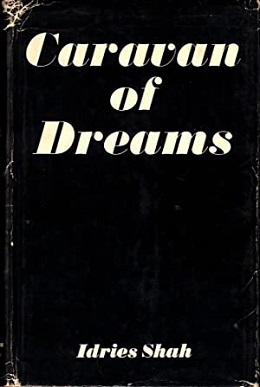
Caravan of Dreams is a book by Idries Shah first published in 1968 by Octagon Press as part of his presentation of traditional Eastern teachings and Sufi ideas for contemporary society. New editions of the book were published in 2015 by The Idries Shah Foundation.

The Elephant in the Dark is a book by the writer Idries Shah, based on lectures he delivered at the University of Geneva as Visiting Professor in 1972–1973. He was invited to speak on the topic of “Salvation as a total surrender to God: an attempt at dialogue between Christians and Muslims.”
The Idries Shah Foundation (ISF) is an independent educational and cultural charity, set up by the family of the late thinker, writer, and teacher in the Sufi mystical tradition, Idries Shah, who wrote over three dozen books on topics ranging from psychology and spirituality to travelogues and culture studies.

The Pleasantries of the Incredible Mullah Nasrudin is a book by the writer Idries Shah, based on lectures he delivered at the University of Geneva as Visiting Professor in 1972–73. The book is a collection of tales, none more than two pages and almost all less than a page long, about the folkloric character Mulla Nasrudin. Published by Octagon Press in 1968, it was re-released in paperback, ebook and audiobook editions by The Idries Shah Foundation in 2015.
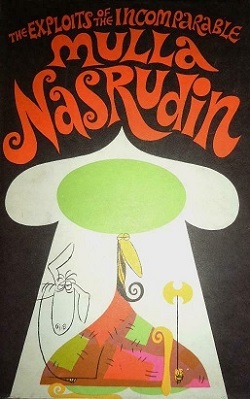
The Exploits of the Incomparable Mulla Nasrudin is a book by the writer Idries Shah, It consists of jokes and anecdotes involving the wise fool of Middle Eastern folklore, Mulla Nasrudin. Published by Octagon Press in 1966, the book was re-released in paperback, ebook and audiobook editions by The Idries Shah Foundation in 2014 and 2015.
















